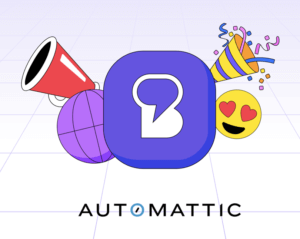 Messaging today is a mess, Automattic wrote. We have endless chat apps on our phones, each with different contacts and notification settings, making it all too easy to accidentally ghost family and friends.
Messaging today is a mess, Automattic wrote. We have endless chat apps on our phones, each with different contacts and notification settings, making it all too easy to accidentally ghost family and friends.
That’s why we’re excited to announce today that Automatic has acquired Beeper, a universal messaging app that combines 14 different chat networks in one inbox. We began investing in messaging last year when we acquired Texts.com. Now, two of the most exciting teams in tech will work together to push the boundaries of messaging, giving us one app that will improve our focus and the way we communicate.
The best and only messaging app you’ll ever need
Beeper has been a leader in simplifying chat apps with a focus on streamlined user experiences. As the teams go through organizational changes,Texts and Beeper will merge under the Beeper brand. But the good stuff you already love isn’t changing! End-to-end encryption keeps your conversations secure, and you’ll have access to well over a dozen app integrations, with even more to come.
Eric Migicovsky, Beeper CEO -> Automattic Head of Messaging wrote:
I’m excited to announce that Beeper has been acquired by Automattic. This acquisition marks the beginning of an exciting new chapter as we continue our mission to create the best chat app on earth.
If you haven’t heard of Beeper before, welcome! We make a universal chat app — one app to send and receive messages on 14 different chat networks. You might have also heard about Beeper Mini, our briefly available iMessage-on-Android app.
In many ways, our journey has only just begun. Beeper has just over 115,000 users and was, until today, in beta. Given the state of the messaging landscape today, we believe there is a huge opportunity for us to push boundaries and create new experiences in chat. The majority of other chat apps have stagnated, entrenched in their positions with no significant new players emerging since Discord’s launch in 2015.
Given the state of the messaging world, we’ve long felt the need for a strong ally with the resources to support us on our quest. Automattic has a long history of putting user control and privacy first with open source, and great bilateral relationships with Meta, Apple, Microsoft, Google, Matrix and others that we hope can usher in a new era of collaboration.
TechCrunch reported WordPress.com owner Automattic is acquiring Beeper, the company behind the iMessage-on-Android solution that was referenced by the Department of Justice in its antitrust lawsuit against Apple.
The deal, which was for $125 million, according to sources close to the matter, is Automattic’s second acquisition of a cross-platform messaging solution after buying texts.com last October.
In my opinion, there certainly seems to be a lot of people working for Automatic that appear to be very excited about the Beeper acquisition.

 Spotify
Spotify  The Liberal government is setting aside $2.4 billion in its upcoming budget to build capacity in artificial intelligence, Prime Minister Justin Trudeau announced Sunday,
The Liberal government is setting aside $2.4 billion in its upcoming budget to build capacity in artificial intelligence, Prime Minister Justin Trudeau announced Sunday,  Hackers are using Facebook advertisements and hijacked pages to promote fake Artificial Intelligence services, such as MidJourney, OpenAI’s SORA and ChatGPT-5, and DALL-E, to infect unsuspecting users with password-stealing malware,
Hackers are using Facebook advertisements and hijacked pages to promote fake Artificial Intelligence services, such as MidJourney, OpenAI’s SORA and ChatGPT-5, and DALL-E, to infect unsuspecting users with password-stealing malware,  Monika Bickert, Vice President of Content Policy at
Monika Bickert, Vice President of Content Policy at